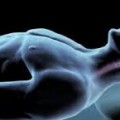Depression is a mental illness that affects millions of people every day. Adults who suffer from the symptoms of the debilitating disorder are often prescribed an antidepressant, but in teenagers, the symptoms are often attributed to the life stage and go untreated. For decades, experts have connected sleep to depression, both getting too much sleep and not getting enough sleep. New study results are now showing that both extremes in sleep patterns signal depression in teenagers.
The age group covering 13 to 19-year-olds generally fall into a few distinct categories. There are the teenagers who appear lazy, wanting to sleep more, blowing off school, and falling asleep in the classes they do attend, and then there are the teens who excel at school, spend lots of time studying and participating in extracurricular activities, but may not get enough sleep each night. Which is worse?

A Study On Too Little Sleep
While this particular research study only covered one high school, the results appear applicable to a broader group of teenagers. 4,175 young people, aged 11 to 17, living in a Metropolitan area with a population of 4 million, were active participants in the study. SLEEP, the journal that published the study’s results, cites the purpose: “To examine the prospective, reciprocal association between sleep deprivation and depression among adolescents.” How does not getting enough sleep affect someone during these years of life?
For the study, sleep deprivation is defined as a person between the ages of 11 and 17 getting six or fewer hours of sleep in a given night, on a regular basis. After a year, 3,134 of the 4,175 teens (75%) responded with follow-up data. Results: The risk of major depression is increased when a teenager does not get at least six hours of sleep each night. The presence of depression, and the severity of its symptoms in a person aged 11 to 17, is then increased, leading to an inability to sleep well, and get enough hours of rest each night.
A Study On Too Much Sleep
1,700 adult twins were studied, and results showed that “the genetic influence on symptoms of depression” were activated in 27% of the participants who slept seven to almost nine hours each night (considered the normal amount of sleep.) 53% of those who sleep five hours each night had activated symptoms of depression, and 49% of those who sleep 10 hours or more each night had a higher occurrence of depression.
In conclusion, Dr. Nathaniel Watson, lead researcher, said that, “Both short and excessively long sleep durations appear to activate genes related to depressive symptoms.”
Sleep And Depression Are Linked
Sleep effects daily functioning, mood, and your body and brain’s ability to heal. Without an appropriate amount of sleep, depression can occur because various aspects of functioning are not healthy. It is important to investigate why a teenager is either not sleeping enough, or is sleeping too much.
Is he or she staying up late playing video games, or even studying, at the expense of six or more hours of sleep? Does that teenager then go to school lethargic and unable to stay awake for the duration of the school day? Is he or she trying to rest, but is unable to fall asleep because of lack of exercise in a given day, or because of caffeine consumption?
Other End Of The Spectrum
On the other end of the spectrum, if a teenager is getting too much sleep, is it because he or she is depressed? Has a set of life circumstances caused a “giving up” of sorts?
Does working hard at school or making friends seem pointless to this teenager, so sleep seems like the best way to spend his or her time? Does it appear close to impossible for this teenager to function without nine or ten hours of sleep each night?
Take Action
Depression is a disorder that will not get better on its own. If a teenager seems to be suffering from the symptoms of depression: fatigue, sadness, hopelessness, despair, disinterest in activities, irritability, changes in appetite, low affect, and an inability to concentrate (among others), the time has come to seek professional help.
Image source: Smart Photo Stock
if you need paper writer


 (6 votes, average: 4.17 out of 5)
(6 votes, average: 4.17 out of 5)









